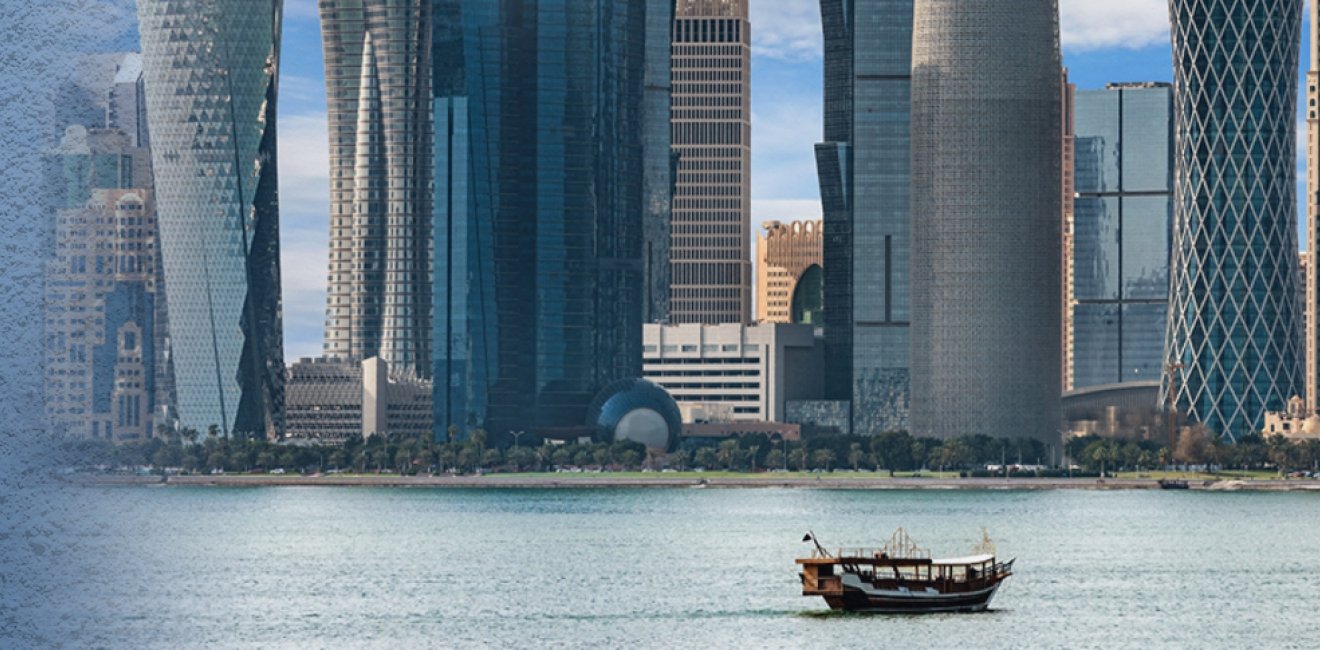Climate change is posing increasingly formidable challenges to all humankind and has been identified as the most pressing global environmental problem, with potentially catastrophic consequences for human development. Today, the focus is on strategies for mitigation and adaptation, involving national action and international cooperation.
It’s a problem with unique characteristics. It is a global challenge that necessitates collective solutions. Further, it is a long-term problem with cumulative outcomes. Addressing it is a cross-generational, cross-border exercise. The current generation cannot solve the problem alone, but it has the responsibility to take urgent action on behalf of posterity.
The Challenge of Decarbonization
Interestingly, the key pillar of the response to climate change—decarbonization—will also be a major force that will change the power and influence of regions and states.
Some nations may require support as the global decarbonization effort accelerates. The decline in the use of fossil fuels may profoundly destabilize countries that have not prepared their economies for the transition. In countries with weak governance, reduced revenue could create political instability, and increased fragility in fossil-exporting countries can have strong effects beyond the respective regions.
The development of clean energy technology, meanwhile, could also result in the technological dominance of a handful of nations. If a small number of countries and companies dominate clean energy technology, concentration could stifle innovation and suppress competition. Countries that do not develop domestic clean energy sources and technologies will remain vulnerable to foreign suppliers.
Further, decarbonization is by no means resource-neutral. Scaling-up low-carbon technologies creates greater demand for certain metals, for example. This may give rise to geopolitical dynamics similar to those experienced in the modern economy.
Just as fossil fuels have shaped the geopolitical map over for the past 200 years—altering international relations, affecting political alliances, and informing national defense strategies—decarbonization and the global transition to renewable energy sources will have profound consequences and alter the international geopolitical landscape. It is therefore important for the world’s superpowers to play an essential role when it comes to leading the initiative against climate change. In order to accelerate the healing, the biggest contributors to the problem to start must be the biggest contributors to the healing.
The Qatari Approach
As a small nation, our contribution is limited. However, as both a producer of fossil fuels and a country especially threatened by sea-level rise, we are very attuned to the challenges and potential benefits of decarbonization.
At the UN Climate Action Summit 2019, His Highness the Amir of Qatar stated, "The phenomenon of climate change is undoubtedly one of the serious challenges of our time. It is a problem that is continuously exacerbating and causing many problems which intertwine in their economic, environmental and social dimensions and have very serious negative repercussions on all forms of life including human life and on both developed and developing countries alike, especially on the tracks of the sustainable development which all peoples aspire to.”
To ensure commitment across government agencies and overcome institutional rivalry and inertia, there must be high-level political engagement to address climate change. In some countries, the responsibility for sustainable development issues is given to environmental ministries and departments—which tend to be under-resourced and insufficiently influential in government—thus hindering the necessary process of cross-sector policy integration. In Qatar, the Qatar National Vision 2030 names Environmental Development as one of its four main pillars, aiming to manage rapid domestic expansion to ensure harmony among the priorities of economic growth, social development, and environmental protection.
Although climate change is a global problem, its impacts will vary. Small states and less developed states often stand on the frontline of climate change and bear its burden. Qatar lacks arable land and water resources for the development of carbon sinks, forests, and green areas and is therefore especially vulnerable to global warming’s impacts. If sea levels rise, coastlines and marine life will be affected, land degradation will occur, and freshwater levels will fall. If temperatures rise, rising underground water salinity and falling freshwater levels will threaten water security and reduce the efficiency of the region’s vital desalination plants. Qatar is among the 10 countries that would be most impacted by sea level rise in terms of percentage of land area and wetlands affected.
In addressing the challenge, all countries, including Qatar, need to reconcile multiple priorities, from economic growth to environmental management to human and social development. For Qatar, as a consumer and key producer of fossil fuels, these priorities can at times be conflicting, especially against a backdrop of increasing local and global demand for energy. A holistic and integrated approach is essential to address the range of environmental, economic, social, educational, and behavioral issues involved.
Qatar is actively working toward the management of risks associated with climate change. There are a number of significant and positive developments:
- Qatar, as the host nation for FIFA World Cup 2022, is committed to organizing an environmental-friendly tournament and the first carbon-neutral tournament through the use of solar-powered stadiums and the use of cooling and lighting technology that is water- and energy-saving.
- In October 2019, Qatar announced the commissioning of a carbon storage plant, the largest of its kind in the region. It aims to capture over five million tons of CO2 per year from Qatar’s LNG industry by 2025.
- In March 2019, during the seventh International Agricultural Exhibition and the first Qatar International Environmental Exhibition, Qatar announced an initiative to plant one million trees by 2021 in order to enhance biological diversity, improve air quality, and reduce the country’s carbon footprint.
- The Qatar Investment Authority is a founding member of the “One Planet” Global Sovereign Wealth Fund, which has been established to promote green investments and accelerate efforts to consider environmental issues in the investment sector and management of sovereign wealth funds. Zero-emission investments represent 44 percent of the fund's infrastructure projects.
Education and Adaptation
Qatar also recognizes education as a key element in addressing climate change. A highly skilled workforce is required to plan, manage, and execute the transition to a diversified and competitive economy away from oil and gas, and to plan and implement adaptation measures, as well as the corresponding transitions of infrastructure. Qatar’s educational system is focused on preparing students to collaboratively address the complexity of our pressing environmental challenges.
Changes in global markets will create new opportunities for Qatar in emerging fields, such as emission reduction approaches, energy efficient technologies, green buildings, agricultural management in arid regions, innovative education, and financing of low carbon activities. Qatar is motivated by good global citizenship to support adaptation in developing countries through increased support for low-carbon power generation. Qatar is involved in several initiatives to this end:
- In 2012, Qatar joined a consortium of founding member countries to establish the Global Green Growth Institute (GGGI). The Institute provides developing countries with the tools to build institutional capacity and develop green growth policy, strengthen peer learning and knowledge sharing, and engage private investors and public donors. Qatar’s disbursement of $10 million toward the GGGI has enabled direct work to be conducted on sustainable energy, water and sanitation, sustainable landscapes, and green cities.
- One-third of the world’s population lives in drylands, which make up approximately 40 percent of the Earth’s land surface. Drylands face many environmental challenges, including water scarcity, temperature extremes, droughts, and floods. At the UN General Assembly in 2013, His Highness the Amir of Qatar described the newly created Global Dryland Alliance (GDA), an organization of dryland countries now headquartered in Doha, as “an initiative created to establish an international organization to face food insecurity consequences and negative environmental and economic impacts associated with climate change.” GDA also offers its members mutual assistance in times of extraordinary need such as national or manmade disasters.
- In 2019, Qatar made a $20 million contribution to the UNDP Accelerator Labs network in 60 developing countries to tackle the world’s most pressing sustainable development challenges.
- Also in 2019, His Highness the Amir of Qatar announced a contribution of $100 million to support small island developing states and the least developed countries in dealing with climate change, natural hazards, and environmental challenges. This support is consistent with the UN priority of “preserving tangible and intangible cultural heritage and promoting culture for island sustainable development.”
The State of Qatar will continue to promote international cooperation and action to achieve inclusive and sustainable development in order to meet the challenges of climate change.
Author

Environmental Change and Security Program
The Environmental Change and Security Program (ECSP) explores the connections between environmental change, health, and population dynamics and their links to conflict, human insecurity, and foreign policy. Read more





